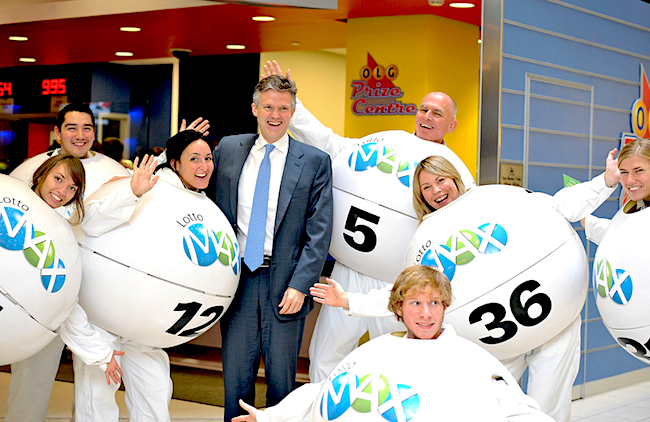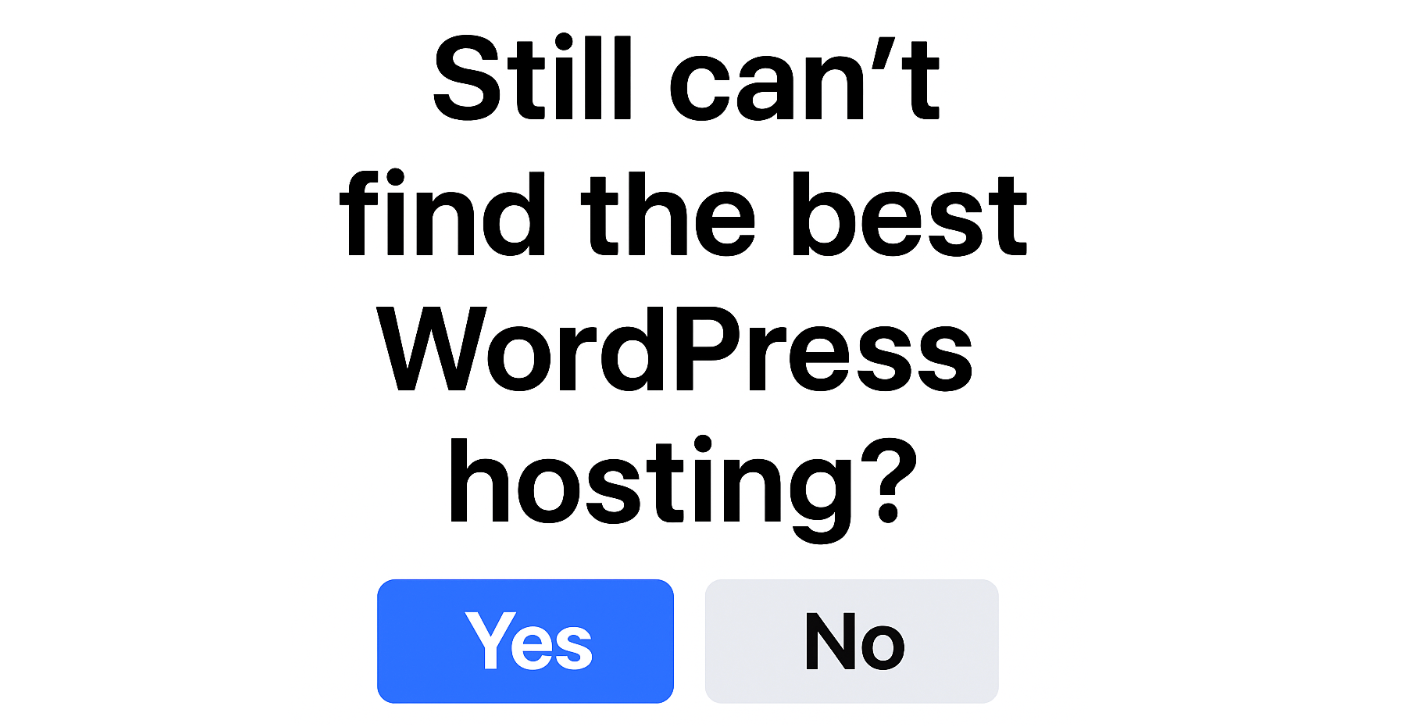Insider look at what lottery winners go through to collect their winnings
/OLG president and CEO Rod Philips poses with Lotto Max mascots.
After the thrill of seeing your numbers on the screen, and after the screaming and celebrating has stopped - what happens next?
Time to collect the prize, and that's a ritual everyone goes through with the lottery office. Some of it is quite necessary - like posing for a public photo.
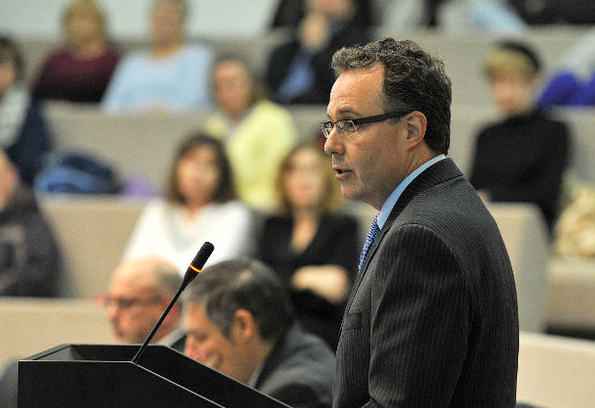
Canada's OLG media spokesman Tony Bitonti.
If you ever thought you could remain anonymous, Canada's OLG spokesman Tony Bitonti says that's rare in his country.
Although winners can refuse to speak to the media, the photo and public release of one’s name - which is posted to the lottery’s website for 30 days - is not optional, reports the Daily Brew.
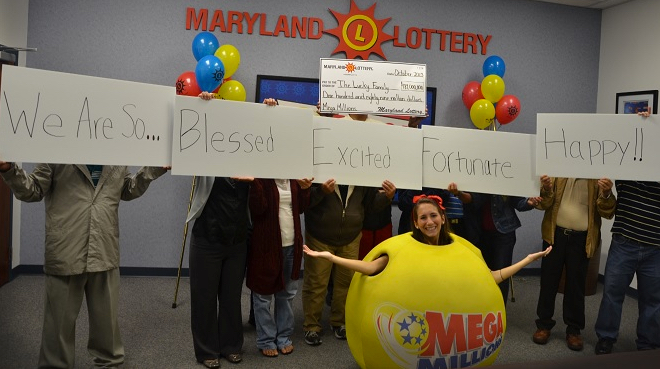
In the USA, Maryland is one of only six states which allow anonymous winners.
By signing your ticket, you’ve agreed to abide by the rules and regulations of the province’s gaming commission.
So what comes next? For Canadians who have won over $1,000, you’re asked to travel to Toronto to the Ontario Lottery and Gaming Corporation (OLG) Prize Center with your signed ticket and two pieces of government I.D.
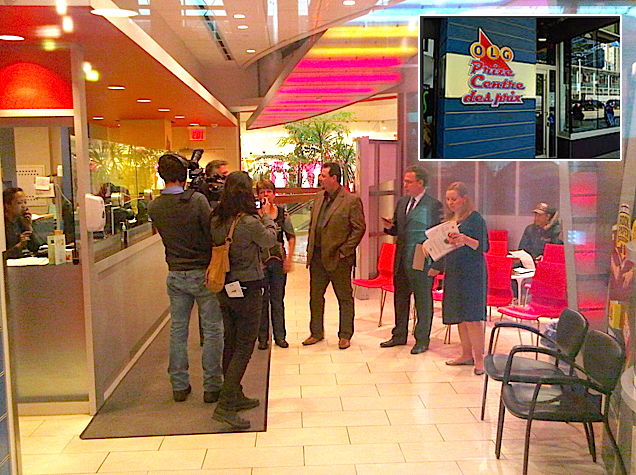
The Ontario Lottery and Gaming Corporation (OLG) in Totonto is the first step to claiming the win.
You can claim a prize at a satellite center if the cost of travel would eat up most of your win.
The ticket will be checked out, your signature and identity verified.
The lottery’s security team will ask a series of questions - only a few of which can be divulged, says Tony Bitonti.
The interview might begin with inquiries about where and when you bought the ticket, and if you purchased anything else with it. Are these your usual numbers?
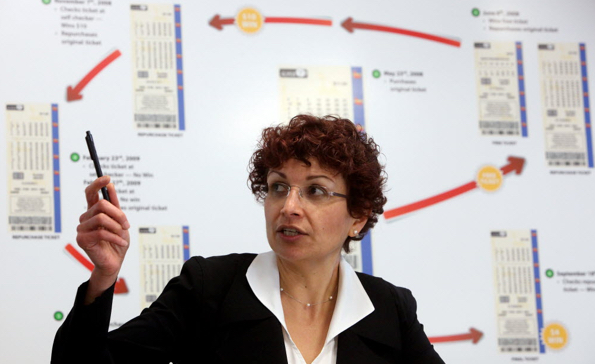
The OLG has a sophisticated checking system to detect ticket fraud says Fariba Anderson. PHOTO: Tim Fraser for National Post
“We might ask what time you got the ticket and if you say, well, it was about 5 p.m., we’ll give you a few hours grace if the location is right,” Bitonti explains.
For most winners, this part of the protocol takes a few hours or a day. Then all winners have to pose for an official photo holding a cheque declaring their prize amount.
“No floppy hats, no big Jacquie Kennedy glasses,” says Bitonti, “though baseball caps and fedoras are okay, as long as your face is visible.”
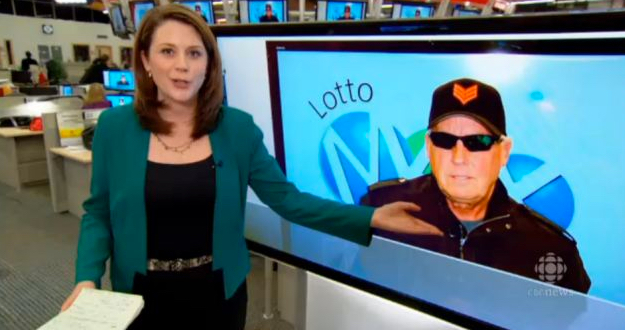
There are some exceptions to the glasses-and-cap identity rule, as $40 million Lotto Max winner Tom Crist was able to demonstrate.
If the amount is large, the OLG will also suggest a press conference. No one wants to talk to the press, says Bitonti, but his team encourages it anyway for winnings of, say, $25 million or more.
This way reporters get their story and are less likely to pester new millionaires on their front porch.
Six U.S. states— Delaware, Kansas, Maryland, North Dakota, Ohio and South Carolina—allow winner identities to remain private. New York’s government and others are considering bills that would essentially do the same thing.
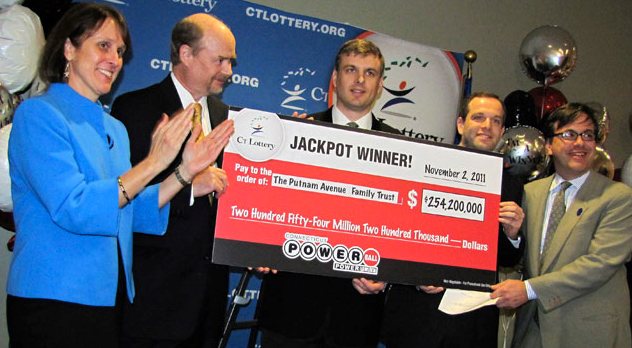
In some states a winner can hide behind a trust and send a lawyer to publicly collect the cheque. These winners were accused of doing that, but it turns out they were the actual trust members.
European lottery winners can make the call about going public or not.
All that's left is the spending and more celebrating, and that's another story.
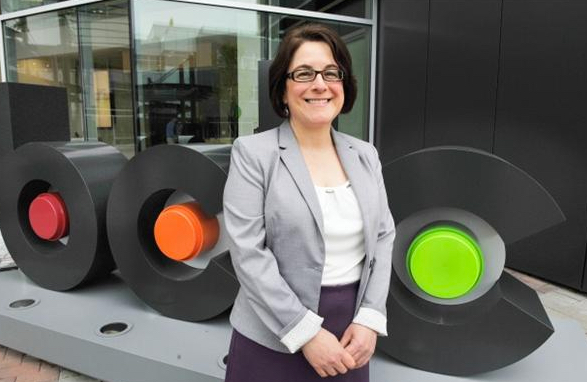
B.C. Lottery Corp. spokeswoman Laura Piva-Babcock.
YOU MAY NOT KNOW: The ticket for Candian lotteries is encrypted with its full history. Laura Piva-Babcock, spokesperson for the British Columbia Lottery Corporation (BCLC) adds that the lottery can analyze patterns in its system, going back months and years.
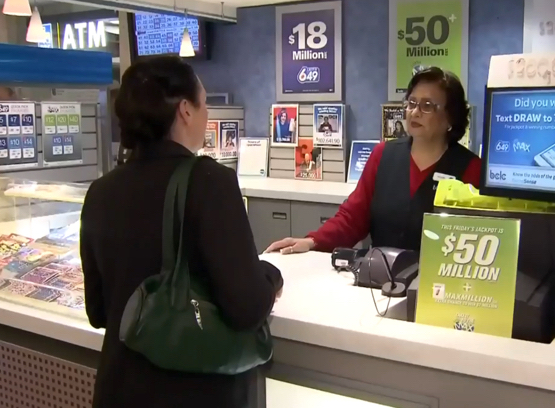
If information comes up during the interview that contradicts what the lottery knows, a fuller investigation begins. “We take as much time as we need,” says Piva-Babcock. “We don’t stop until we’re satisfied we have the right person.”
SOURCE: Daily Brew

